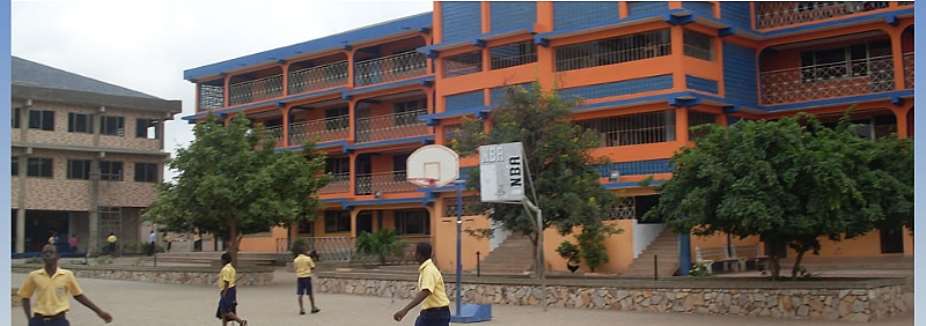I don’t know when the disciplinary rot actually set in, but I am quite certain that it long preceded the officially established date of 1984 when, we are told, the Rawlings-led junta of the Provisional National Defense Council (PNDC) assumed control of all government-assisted first- and second-cycle institutions in the country (See “I Will Restore Control of Mission Schools to Churches – Akufo-Addo” MyJoyOnline.com / Ghanaweb.com 11/11/17). For as long as I can remember, most of our Western European-introduced schools have been significantly influenced by both the central and local governments of the day. But it was, perhaps, under the stewardship of the Nkrumah-led Convention People’s Party (CPP) that the sort of firm authority wielded by the central government was most radically felt. That was when one needed to become a card-carrying member of the Convention People’s Party to be able to teach or lecture at the University of Ghana, the nation’s oldest and foremost tertiary academy, without any lets or hindrances, as it were.
It was also during this epoch in our nation’s history that partisan politics assumed center-stage in our educational system. But that was also when the spread of formal education took an exponential turn, in terms of the rate of increase in the number of schools established and the ready access to the same. That was also when a fee-free education at the elementary and middle levels began. We must also quickly point out that secondary education was heavily subsidized, as a burgeoning cocoa industry, largely privately owned but government-controlled, commercially speaking, generated enough money for the national economy. There is, of course, absolutely no gainsaying that in terms of the success of Ghanaian education, the cocoa industry is the single overriding factor, even as Dr. J. B. Danquah was widely known to have emphasized time and again (See yours truly’s political biography titled “Dr. J. B. Danquah: Architect of Modern Ghana” iUniverse.com, 2005).
I am assuming that the foregoing decision by the Akufo-Addo-led government of the New Patriotic Party (NPP) is predicated on the assumption that the government is going to continue to heavily subsidize the management of the mission schools. The recent implementation of the fee-free publicly owned second-cycle institutions is a good indication in this direction. But, of course, there is also the implicit expectation that the budgetary commitment for the administration of the restored missionary schools will be shared fairly reasonably between the leaderships of the various Christian, as well as non-Christian, religious establishments and the central government. And on the latter score, of course, I also have in mind the minority but equally critical Muslim community.
In the main, the major players are the Presbyterians, Methodists, Catholics and Anglicans, as well as the Seventh-Day Adventists, among others. I am also assuming that the Muslim educational institutions are equally denominated across doctrinal lines. However the ultimate arrangements shape up to be, we cannot unrealistically romanticize the missionary educational past. For it was nowhere near as picture-perfect as these Christian Church Leaders would have the rest of us believe. But it definitely was remarkably better than the present secular system. I have mixed feelings towards the entire “restoration project” in view of the inexorably rapid pace of the sweep of “globalization” and the cultural homogeneity that such massive process involves.
The fact of the matter is that we have been hurtling towards “Religious Ecumenism,” and one which many of our most foresighted leaders have been fully aware of, for quite some time now. Which means that any serious attempt to restore control of our mission schools to our Churches or church leaderships – for this is what the calls and agitations imply – must also adequately and pragmatically take into consideration the fact that the Ghana of 1957 or 1960, is decidedly hardly the same as the Ghana of a technologically globalized 2017. In short, we need to proceed with caution.
*Visit my blog at: kwameokoampaahoofe.wordpress.com Ghanaffairs
By Kwame Okoampa-Ahoofe, Jr., Ph.D.
English Department, SUNY-Nassau
Garden City, New York
November 11, 2017
E-mail: [email protected]





 There’s nothing you can do for us; just give us electricity to save our collapsi...
There’s nothing you can do for us; just give us electricity to save our collapsi...
 Ghanaian media failing in watchdog duties — Sulemana Braimah
Ghanaian media failing in watchdog duties — Sulemana Braimah
 On any scale, Mahama can't match Bawumia — NPP Youth Organiser
On any scale, Mahama can't match Bawumia — NPP Youth Organiser
 Never tag me as an NPP pastor; I'm 'pained' the 'Akyem Mafia' are still in charg...
Never tag me as an NPP pastor; I'm 'pained' the 'Akyem Mafia' are still in charg...
 Your refusal to dedicate a project to Atta Mills means you never loved him — Kok...
Your refusal to dedicate a project to Atta Mills means you never loved him — Kok...
 2024 elections: I'm competent, not just a dreamer; vote for me — Alan
2024 elections: I'm competent, not just a dreamer; vote for me — Alan
 2024 elections: Forget NPP, NDC; I've the Holy Spirit backing me and nothing wil...
2024 elections: Forget NPP, NDC; I've the Holy Spirit backing me and nothing wil...
 2024 elections: We've no trust in judiciary; we'll ensure ballots are well secur...
2024 elections: We've no trust in judiciary; we'll ensure ballots are well secur...
 Performance tracker: Fire MCEs, DCEs who document Mahama's projects; they're not...
Performance tracker: Fire MCEs, DCEs who document Mahama's projects; they're not...
 Train crash: Railway ministry shares footage of incident
Train crash: Railway ministry shares footage of incident
